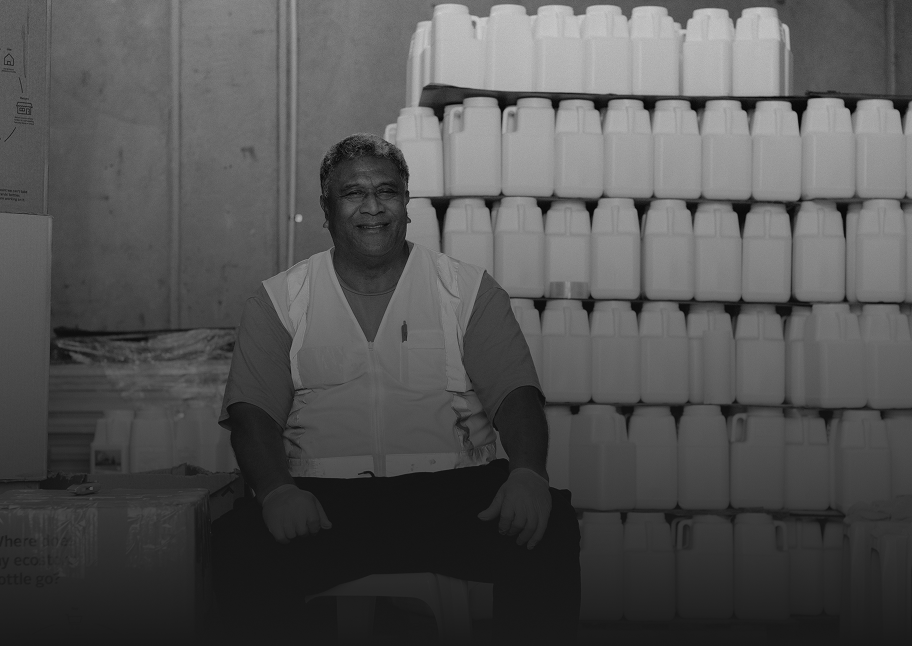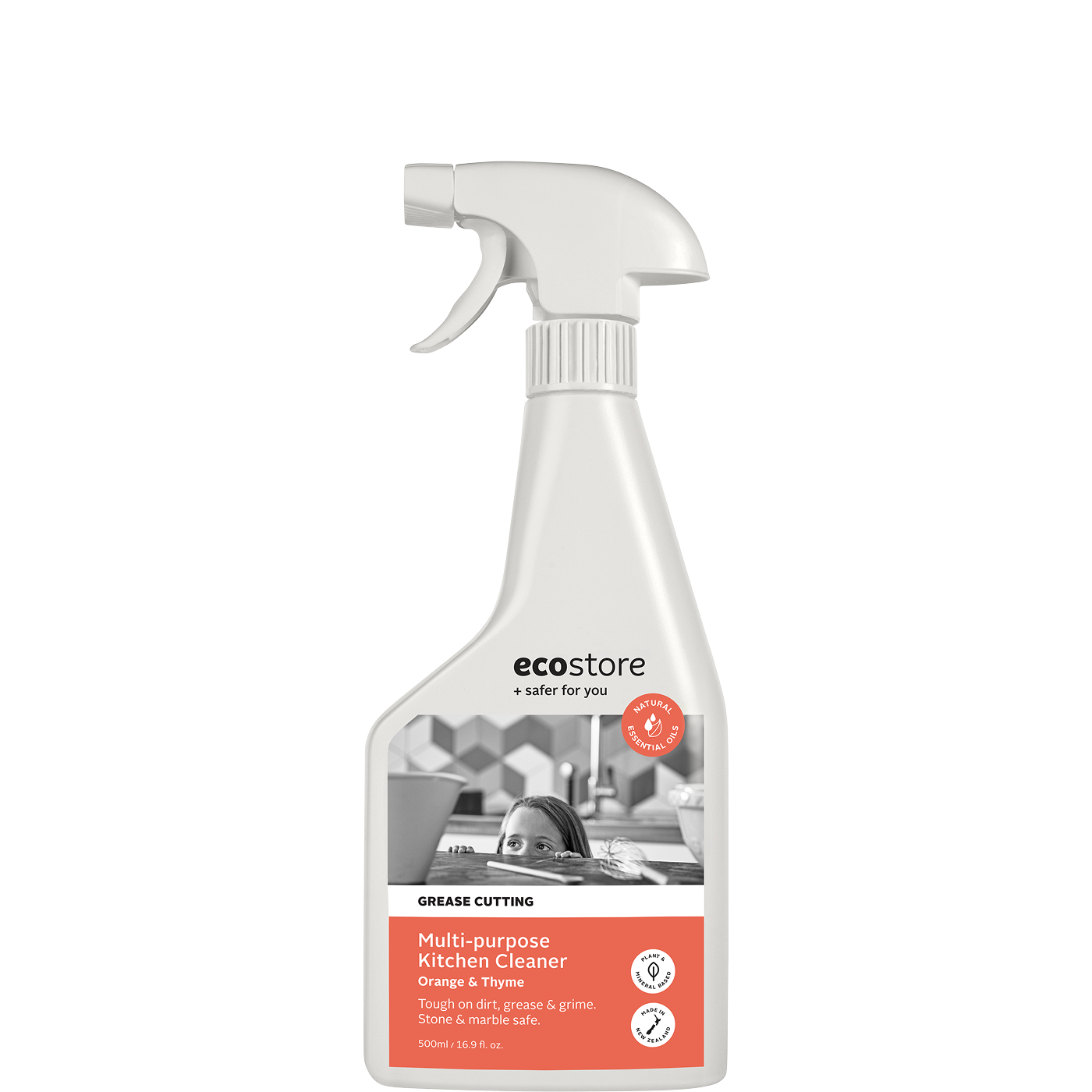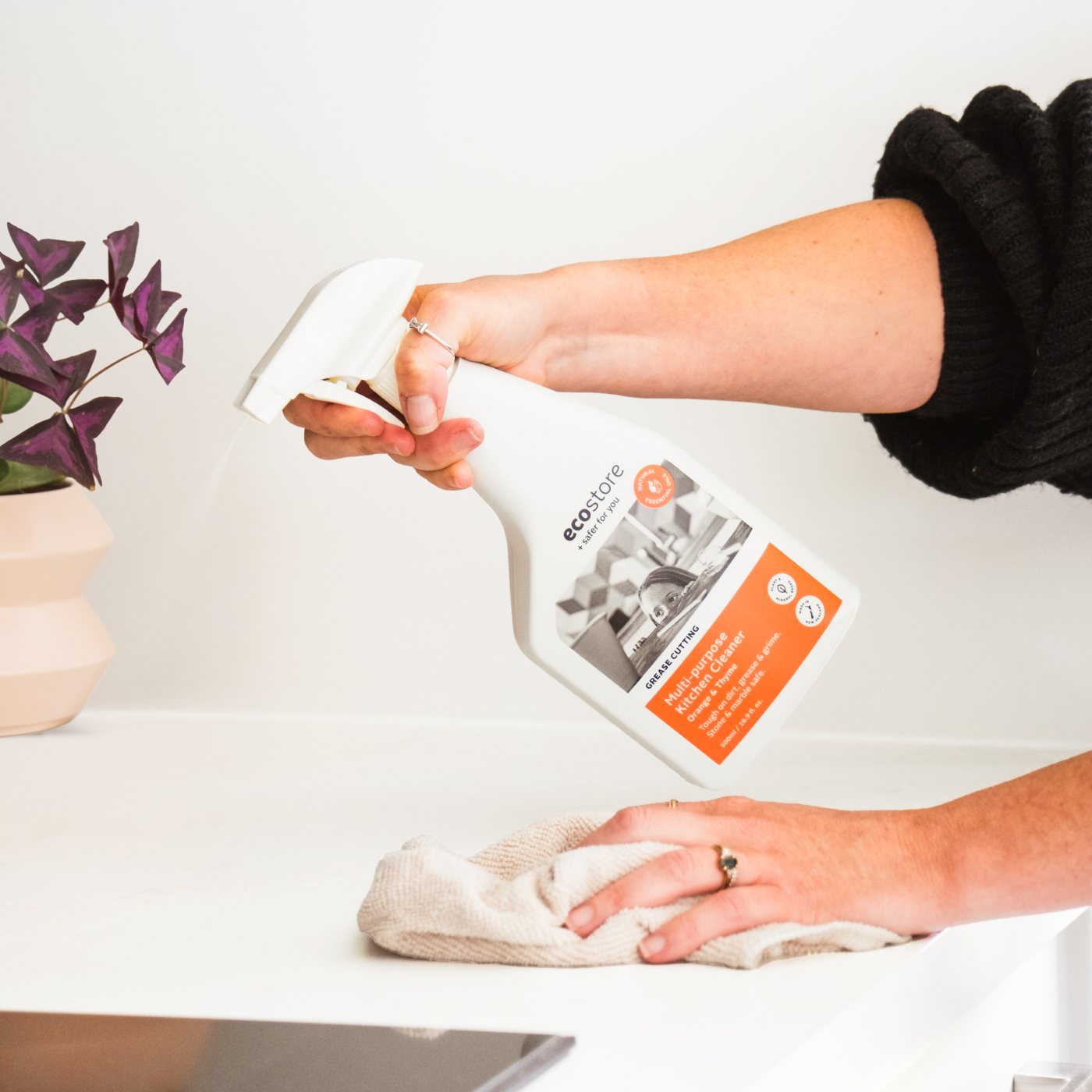Reduce, then recycle
Thinking about creating less waste is a great mindset, because it means less rubbish in landfill and less that needs recycling. Recycling is a great practice around the home, but once it leaves your place it's a process that takes energy, resource and cost.
Maybe you can cut down on the amount of disposable products you're using - like serviettes, paper towels and cutlery. It's just as easy to use a cloth and sets of cutlery that are washable. This also applies to containers - try using larger bins for storage of pantry staples and cereals. That will save on disposable boxes and bags. Some large ceramic pots or glass jars could be an alternative to food wrap that would need to be thrown out.
We also recommend buying things like dish detergent in bulk size containers and refilling them, which reduces plastic waste.
Cut down on food waste
Food waste is a big problem globally, but there are lots of ways you can play your part and make it smaller! One idea is to stick to the shopping list so you're not bringing too much food into your home. After that you can try to use as much of the food as possible - even things like stalks and skins, in what you cook. And if those little leftover bits are still there, setting up a compost bin is a handy way to keep them out of the rubbish. That way you're turning food scraps into fertiliser for the garden, where you can also grow your own healthy produce.
Check your appliances
Energy efficient appliances are really important, because we use so many of them in the kitchen. As well as the fridge, freezer and oven, we might have a dishwasher and smaller cooker, as well as things like coffee machines and popcorn makers. Think about doing your homework on how efficient these appliances are before purchasing, then using them in a way that saves as much energy as possible. As with any appliances, try to turn the ones in your kitchen off at the wall when they're not in use. A tip that applies particularly to your fridge and freezer is ensuring seals are in good condition, and that the temperature is set at the best level for what you've stored.
Be water wise
The demands of cooking and doing dishes mean it's easy to use lots of water in the kitchen, but there are ways to reduce how much you use. If you wash dishes by hand, try using a sinkful of water instead of leaving the tap running. And if your taps are dripping or leaking, try to get them fixed as soon as possible. If you have a dishwasher, aim for the most water efficient setting. And remember you don't need to rinse dishes before stacking them into the dishwasher.
Re-using greywater (any waste water we generate at home) is also a great way to care for the environment. That's why we recommend choosing detergents that don't have ingredients that could lessen soil and plant health if used on the garden.
If you have any tips for cutting down on kitchen waste, we'd love to hear your ideas!
Read more

Buffy-Ellen's Beetroot, Basil and Black Bean Burgers Serves 5-6 (12 patties) Takes 15 mins prep + 20 mins bake Make with: Always use certified organic, local and fairly traded ingredients where...

1. Get cooking: There's nothing more satisfying than preparing a tasty treat or meal for the first time. Homemade pizzas are a simple lunch idea, and kids can get creative with colourful vegetable...






